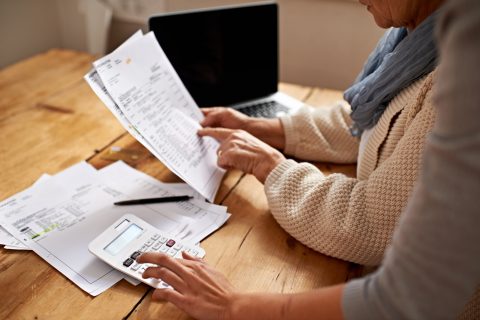
Tax, National Insurance and benefit entitlements may seem like a total minefield for many foster carers. We’ve put together a series of articles in our Foster Carer Finance Guide, to help you gain a better understanding of the tax, NI and benefits world, so you can focus your energy on the children in your care.
This is the first article in the series, which aims to shed some light on foster carer tax and self-assessments, as well as answer some of the common questions we’re asked about foster carer finances.
Are foster carers self-employed?
First things first, it’s important to know that foster carers are classed as self-employed, so make sure you register yourself as self-employed as soon as you start caring for your first foster child. Once registered, you’ll then be required to complete a tax return, which we will talk about in more detail later in this article.
There are three relatively straightforward ways in which you can register yourself as self-employed:
1. Register online here: www.gov.uk/log-in-register-hmrc-online-services/register
2. Complete a CWF1 form available online
3. Call the newly self-employed helpline on 0300 200 3504
Is income from fostering taxable?
The simple answer is yes – your foster carer allowance is taxable. However, due to your unique circumstances, HMRC have granted specialist tax rules for foster carers, known as Qualifying Care Relief, which allow foster carers to receive payments up to a certain amount, tax-free.
This foster carer tax relief is also granted for respite, staying put care and parent and child placements.
The total amount of money you receive from your fostering agency or local authority is treated as your income, which includes your weekly fostering allowance, all reimbursed expenses, holidays, clothing allowances, mileage and respite payments.
The Qualifying Care Relief is then deducted and made up of two parts:
1. A fixed amount of £10,000 for each household for a full year
2. A weekly tax relief allowance for each child in your care:
a. £200 for children under 11
b. £250 for children aged 11 or over
If you’ve been fostering for less than a year or there’s more than one foster carer in your household, there’s some guidance on the gov.uk website that shows how the fixed amount works.
The weekly allowance runs from Monday to Sunday. So, if a child stays with you for 1 night, you’ll be entitled to 1 week of tax relief. If the child comes to you on the Saturday and leaves on the Tuesday, while it’s only 3 nights, you’re entitled to 2 weeks of tax relief. Make sure you keep a record of the days in which children arrive and leave from your care and submit correctly on your tax return (or provide the information to your accountant).
The balance after your Qualifying Care Relief and any additional expenses have been deducted, represents your taxable income.
Taxable income = total income – (Qualifying Care Relief + additional expenses)
There are also other factors that will determine how much tax (if at all) you’ll pay, including:
1. The number of placements you have.
2. The type of placement you have and whether you’re paid an enhanced fee.
3. Whether you operate as a partnership for tax purposes.
4. Whether you receive any other income, as well as fostering; for example, a part-time job.
Do foster carers need to complete a tax return?
Foster carers must complete a tax return every year while fostering. The end of the tax year is the 5th April and you have until 31st January to get your tax return submitted. If you miss the deadline, you’ll receive a £100 penalty from HMRC, so make sure you get in early.
You can only submit one self-assessment, so make sure any other sources of income are included within the same tax return. Within your self-assessment, make sure you tick the box for ‘If you are a foster carer or shared lives carer, put ‘X’ in the box’.
Do I need to keep receipts for all expenses?
No, there’s no need to keep a record of your day-to-day expenses, as the Qualifying Care Relief represents the standard costs associated with fostering – for example, mortgage or rental payments, heating, electric, food, clothing, etc.
However, depending on the young person in care and their needs, you may find yourself with additional, tax-deductible costs that are associated with their care; however, evidence of costs is required.
There’s no set list of things that can be deducted on your tax return, each case is handled individually. So, make sure you keep a tab of any additional costs you may be enduring. For example, you may have a child who frequently wets the bed, therefore receipts from the additional washing powder should be stored.
Need Help With Your Self-Assessment?
We’ve worked closely with William Giles Chartered Accounts to write this article, who are a specialist accountant to the fostering sector. Their specialist team understand the challenges faced by Foster Carers and therefore have a Foster Carer tax team, who are dedicated to providing personal tax services to them.
They have developed a comprehensive, tailor made fixed fee tax return service to meet the needs of Foster Carers. To find out more about their services for Foster Carers please contact them on 01795 478044 or visit their website, or their page on The Fostering Network’s website.
